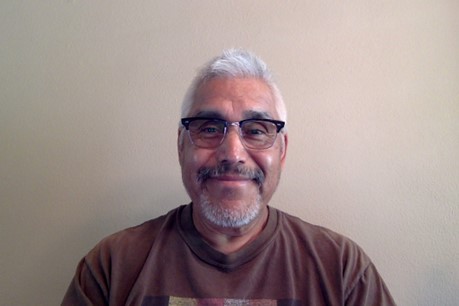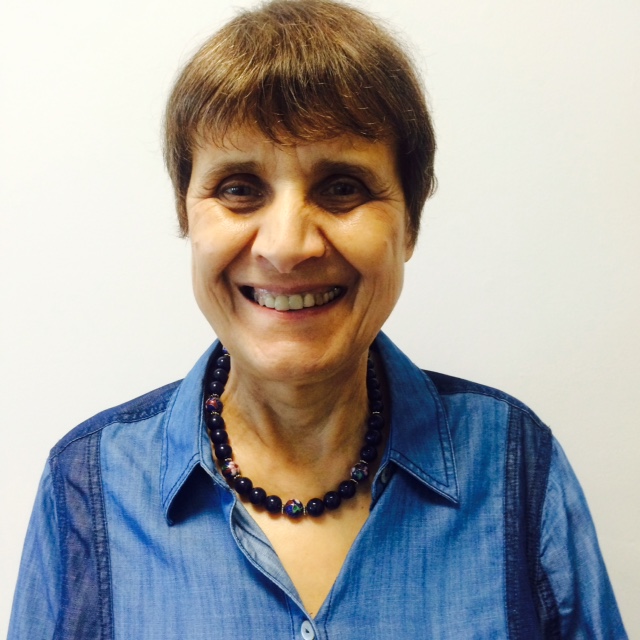The Centre for Teaching and Learning is delighted to host a 3-part speakers’ series in 2024-2025 on Greening Higher Education, supported by the Distinguished Visiting Speakers Series’ fund. This series was conceptualized and developed by Dr. Susan Hillock, a Full Professor in the Department of Social Work at Trent’s Durham/GTA campus. Susan is an experienced social worker, having worked in the field for over 30 years; she is also a recognized leader in Trent’s teaching and learning community. Her most recent work has focused on infusing environmentalism and sustainability into social work education. She is the author of Greening Social Work Education (University of Toronto Press, 2024). This series explores how we might think about “greening” our teaching content, policies, and practices across disciplines and features three visiting scholars from Canada and the United Kingdom to share their expertise in this area. Each visit includes plenary talks to which all Trent faculty and staff are invited. We hope you’ll join us!
Dr. Michael Yellow Bird

Michael Yellow Bird, CMT, MSW, PhD, is Dean and Professor of the Faculty of Social Work, University of Manitoba. Dr. Yellow Bird is a member of the International Mindfulness Teachers Association and is a certified mindfulness teacher, professional, and has been practicing mindfulness meditation and Indigenous contemplative practices for more than 47 years. He is a member of the MHA Nation (Mandan, Hidatsa, and Arikara) in North Dakota. He has held faculty appointments at the University of British Columbia, Kansas, Arizona State, Cal Poly Humboldt, and North Dakota State University. His research focuses on the effects of colonization and methods of decolonization, healthy Indigenous aging, Indigenous mindfulness and neuro-decolonization, Arikara ethnobotany and traditional agriculture, and the cultural significance of Rez dogs.
He is the author of numerous scholarly articles and the co-editor of four books: For Indigenous Eyes Only: The Decolonization Handbook, 2005; For Indigenous Minds Only: A Decolonization Handbook, 2012; Indigenous Social Work around the World: Towards Culturally Relevant Education and Practice, 2008; and Decolonizing Social Work, 2013. He is the co-author of two recent books: A Sahnish (Arikara) Ethnobotany (2020) and Decolonizing Holistic Pathways Towards Integrative Healing in Social Work (2021). He is currently co-authoring two books, Arikara Corn and Traditional Agriculture and Decolonizing the Social Work Curriculum and working on two solo authored books: The Memoirs of a Mindful Rez Kid and Rez Dog Meditations. His most recent scholarly health articles include, The Cultural Determinants of Healthy Indigenous Aging (2022), Molecular Decolonization: An Indigenous Microcosm Perspective of Planetary Health (2020), and Decolonizing Fasting to Improve Indigenous Wellness (2020).
Plenary Session: The Power of Ceremony: Indigenous Contemplative Practices and the Earth
Indigenous contemplative practices and teachings have enabled Indigenous Peoples to develop a deep, intimate relationship with the natural world and an appreciation and respect for its beauty, diversity, and complexity. The understanding that the Earth is a living being with dynamic ecosystems such as rainforests, savannahs, grasslands, deserts, and aquatic systems that support human life, has provided a pathway for humans to experience a sense of unity, harmony, and interconnectedness with all living things. In this presentation, Dr. Michael Yellow Bird, shares how Earth-based Indigenous contemplative practices can promote a stronger connection to all life on the planet and support the idea of the greening of higher education. He combines Indigenous wisdom along with western science to show how learning Earth contemplations can create important changes in the brain and body that can transform our relationship with the Earth. Participants will come to understand the connections between western neurosciences and Indigenous knowledge and ways of being and how this content is relevant to the greening of social work education and can be added to their teaching and curriculum.
Date/time: October 30th, 2024. 9:30-11:15am.
Location: CCN M2 (Champlain College North Council Chambers) and online via Zoom.
Register to attend in-person here.
Register to attend online via zoom here.
Dr. Charles Hopkins
Charles Hopkins, PhD holds the UNESCO Chair in Reorienting Education towards Sustainability at York University in Toronto, Canada. This Chair, established in 1999, was the first to focus on Education for Sustainable Development (ESD) as an essential concept for quality education and to position sustainability as an overarching purpose of education. Hopkins’ Chair coordinates two global ESD research networks, the International Network of Teacher Education Institutions and the #IndigenousESD, conducting global research projects. The first network is comprised of teacher education institutions spanning 50 countries and focuses on enhancing ESD in pre-service and in-service teacher training. The second network covering 40 countries, aims to embed sustainability in curricula to improve the education of Indigenous youth. Internationally, Hopkins has a long relationship with education and sustainability, including chairing the writing and adoption processes of UNESCO ESD Declarations. An awarded education leader with honorary doctorates and professorships, Hopkins has lectured and presented papers in approximately 75 countries. He also serves as the Co-Director of the Asia-Pacific Institute on ESD in Beijing, China.
Facebook: https://www.facebook.com/unesco.chair.esd/
Instagram https://www.instagram.com/unesco.chair/
Website: https://yorku.ca/unescochair/
LinkedIn https://www.linkedin.com/school/unescochair-esd/
Plenary Session: Greening Higher Education: Contributing to a Better Future for All
Higher education graduates greatly influence and set societal norms when assuming leadership roles in public institutions, governments, and the private sector or shaping societies through a range of social and professional services as well as their lifestyle choices. Higher education institutions in many countries are committed to undertake greening initiatives in teaching and learning, research, and community service to enable their graduates to develop the knowledge, skills, and attitudes to address current and future sustainability issues. This lecture will explore the United Nations call to transform higher education through greening to create a more peaceful, just, and sustainable future for all.
January 22nd, 2025
10-11:30am, location TBD.
Registration to come.
Dr. Lena Dominelli

Lena Dominelli, PhD, AcSS, holds a Chair in Social Work and is Director of the Programme on Disaster Interventions and Humanitarian Aid at the University of Stirling in Scotland. She was previously Co-Director at the Institute of Hazards, Risk and Resilience (2010-2016) at Durham University. She has a specific interest in projects on climate change and extreme weather events including drought, floods, cold snaps and wildfires; earthquakes, volcanic eruptions; disaster interventions; vulnerability and resilience; community engagement; coproduction and participatory action research. Her research projects include funding from the ESRC, EPSRC, NERC, the Department of International Development, Wellcome Trust and UNICEF. Lena is a prolific writer and has published widely in social work, social policy, and sociology. She currently chairs the IASSW Committee on Disaster Interventions, Climate Change and Sustainability and has represented the social work profession at the United Nations discussions on climate change, since Cancun, Mexico in 2010. Her latest single authored book is, Social Work During Times of Disasters (2023, Routledge). She has received various honours for her work.
Plenary Session: Greening the Social Work Curriculum to Engage in Averting Climate Change Disasters: A Transdisciplinary Approach to Theory and Practice.
Climate change is one of the greatest social challenges facing contemporary societies. This presentation provides green social work perspectives on what social work academics and practitioners can do to integrate extreme weather events (floods, heat waves, coastal erosions among others) into their daily routines in the academy, in practice and in their lifestyles as citizens living in communities that require nurturing.
Green social work is a holistic, transdisciplinary approach to disasters and social interventions aimed at preventing, and if that fails, responding to them. Green social work integrates insights from the physical scientists such as seismology, vulcanology, civil engineering, physics, chemistry and biology with social sciences theories including anti-oppressive theory and practice and an understanding of people’s interactions with nature and society to care for nature and planet earth by reinforcing the centrality of reciprocity between people, societies, and nature and all it contains. Green social work also encourages the use of artistic forms of communicating the messages from research to diverse audiences. These should follow the principles of equality, acknowledgement of diversity, inclusion, social and environmental justice, and respect and dignity, values essential to anti-oppressive social work theory and practice. This plenary will focus on what people need to learn as well as what to do, regardless of their role or status in society. Green social work argues that every inhabitant on earth has a duty to care for the planet if they expect the planet to provide the resources and ambiance that they need to survive and thrive. Feminist ethics as expressed in the duty to care for others and the expectation to be cared for oneself, are an integral part of green social work in implementing a green approach to taking care of the planet and all it entails.
March 25th, 2025
10-11:30am, location TBD.
Registration to come.

